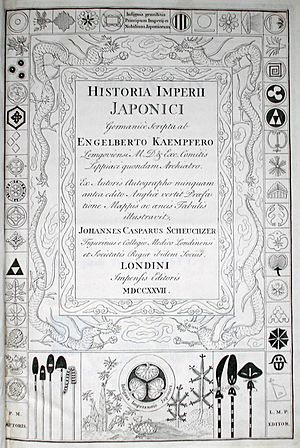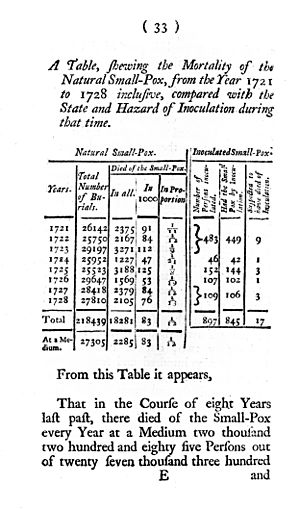Johann Caspar Scheuchzer facts for kids
Johann Caspar Scheuchzer (born January 26, 1702 – died April 21, 1729) was a smart person from Switzerland. He was known as a naturalist (someone who studies nature), a physician (a doctor), and a writer who studied the history and culture of Japan. He was also called Hans Kaspar or Jean Gaspard.
A Young Life
Johann Caspar Scheuchzer was born in a city called Zürich in Switzerland. He was the third child of a famous scholar named Johann Jakob Scheuchzer and his wife Susanna. His father was a very busy man who worked as a doctor, a scientist studying nature, and a writer about the Alps mountains. Johann Caspar grew up in a home where learning and new ideas were always encouraged.
Sadly, Johann Caspar Scheuchzer passed away in the spring of 1729. He was living in London at the home of a famous collector named Sir Hans Sloane. He was buried on April 24, 1729, in the churchyard of Chelsea Old Church.
His Important Work
Johann Caspar Scheuchzer wrote about different topics, showing how smart he was. One of his most important works was about a serious illness called smallpox.
Studying Smallpox
In 1729, Scheuchzer published a book called An account of the success of inoculating the small-pox in Great Britain, for the years 1727 and 1728. This book was very important because it talked about a new way to prevent smallpox called inoculation.
- What is Inoculation? Inoculation was an early form of vaccination. Doctors would take a tiny bit of material from someone with a mild case of smallpox and put it into a healthy person. This would usually give the healthy person a very mild version of the disease, making them immune to the more dangerous natural smallpox later on.
- Why was it important? Smallpox was a deadly disease in the 1700s. Many people died from it, and those who survived often had terrible scars. Scheuchzer's book shared information about how well inoculation was working in Great Britain.
- Global Connections: His book also included details about how inoculation was being used in other parts of the world, like Tunis, Tripoli, and Algier. This showed that people were trying to fight smallpox in different ways across the globe.
Scheuchzer's work helped people understand more about this new medical practice. It showed how doctors were trying to save lives and make people healthier during a time when many diseases were very dangerous.
 | Laphonza Butler |
 | Daisy Bates |
 | Elizabeth Piper Ensley |



